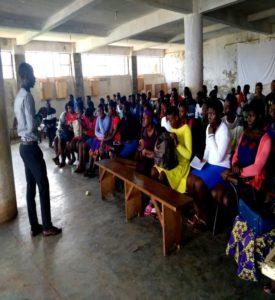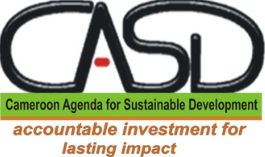 The North West Region of Cameroon is now a humanitarian crisis setting and delivering sexual and reproductive health services there is no long business as usual. It took exceptional compassion and sacrifice by the project team to achieve this project. Changes to the project scope and approach were made on a rolling basis, putting safety and security first as the crisis deteriorated. According to Amnesty International, the Anglophone Crisis in Cameroon has killed over 3,000 people and left more than 600,000 internally displaced. The city of Bamenda where this project is based has had more deaths and reported sexual abuses than the rest of the nations combined. Reproductive health supplies to the region have dropped drastically and many health centers have scaled-down. There is therefore no better time to strengthen the Girls’ Choice Project than now. The open telephone line that remotely ‘consults’ the girls 24/7, is some beneficiaries’ lifeline.
The North West Region of Cameroon is now a humanitarian crisis setting and delivering sexual and reproductive health services there is no long business as usual. It took exceptional compassion and sacrifice by the project team to achieve this project. Changes to the project scope and approach were made on a rolling basis, putting safety and security first as the crisis deteriorated. According to Amnesty International, the Anglophone Crisis in Cameroon has killed over 3,000 people and left more than 600,000 internally displaced. The city of Bamenda where this project is based has had more deaths and reported sexual abuses than the rest of the nations combined. Reproductive health supplies to the region have dropped drastically and many health centers have scaled-down. There is therefore no better time to strengthen the Girls’ Choice Project than now. The open telephone line that remotely ‘consults’ the girls 24/7, is some beneficiaries’ lifeline.
The project was welcomed in the West Region by adolescents and government stakeholders. However, being a French speaking region, many of the beneficiaries could not quite understand English especially as the IEC materials were in English only. Moving forward, translating the family planning brochure into French will ease uptake of information by those of French speaking expression.
With the extension of the project to the West Region, the movement of the entire project team to and from the Region was costly. Thus, a few young people in the West Region were trained to serve as peer educators, limiting the number of team members on travel missions.
Myths and beliefs about modern family planning methods are a major barrier to their uptake. Multi-stakeholder collaborations are needed to rightly inform young people and ensure the same message is taught. This is because adolescents sometimes reported to have been contrarily informed by other stakeholders.
Amidst the civil war, access to SRH services became an emergency. The law demanding girls below 19 to seek parental consent to access modern contraceptive services in public clinics became obsolete. More parents and adults became partners in mobilizing adolescent girls to the Girls’ Choice services.
To meet up with the evolving capacities of young people and advancements in contraception technologies, project staff had to put in more effort in seeking new knowledge. Therefore, participation in international conferences is necessary for the project staff.
